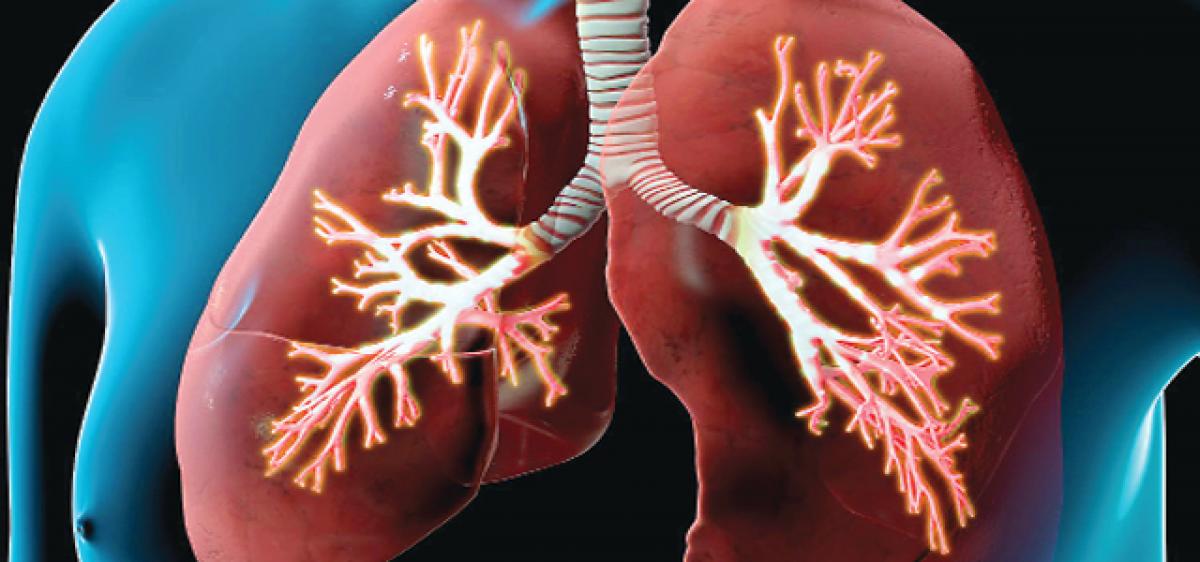How COPD causes lungs to lose their ability to heal

The first indication of COPD is usually a chronic cough. As the disease progresses, the airways narrow and often pulmonary emphysema develops. This indicates irreversible expansion and damage to the alveoli, or air sacks.
Researchers have identified a molecule that impairs the lungs' ability to repair damages on their own after developing chronic obstructive pulmonary disease (COPD) that makes it makes it hard for sufferers to breathe.
The first indication of COPD is usually a chronic cough. As the disease progresses, the airways narrow and often pulmonary emphysema develops. This indicates irreversible expansion and damage to the alveoli, or air sacks.
"The body is no longer able to repair the destroyed structures," explained Melanie Konigshoff from Helmholtz Zentrum Munchen -- German Research Centre for Environmental Health.
"In our current work we have been able to show that COPD results in a change in the messengers that lung cells use to communicate with one another," Konigshoff added.
In the study published Journal of Experimental Medicine, the researchers blamed the increased production of the molecule Wnt5a for this problem.
"Our working hypothesis was that the relationship between different Wnt messengers is no longer balanced in COPD," the study's first author Hoeke Baarsma from Helmholtz Zentrum Munchen.
"In both the pre-clinical model and the tissue samples from patients, we found that in COPD tissue particularly the non-canonical Wnt5a molecule is increased and occurs in a modified form," Baarsma added.




















